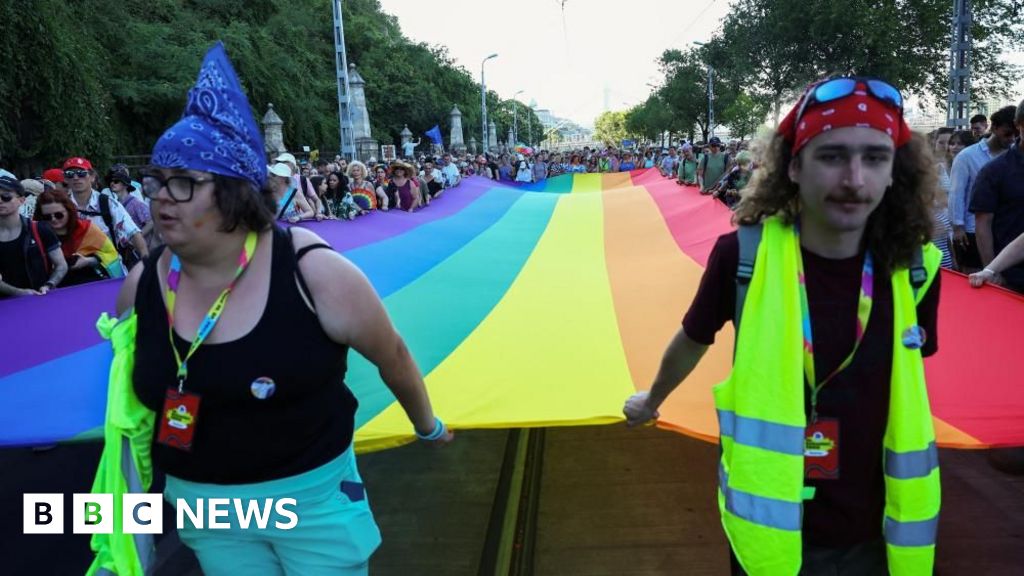Budapest’s vibrant reputation as a party city was on full display Saturday as thousands celebrated Pride, transforming the streets into a lively festival. Under the sweltering summer sun, between 100,000 and 200,000 participants, predominantly young people, filled the Elizabeth Bridge and both banks of the Danube while marching from Pest to Buda—a route normally covered in just 20 minutes, but which took over three hours due to the overwhelming crowd.
Many attendees attributed their participation to Prime Minister Viktor Orban’s recent ban on the event. In stark contrast to last year’s modest turnout of about 35,000, this year’s celebration saw numerous banners ridiculing the prime minister, reflecting a sense of peaceful defiance from those he has marginalized during his long tenure. One banner boldly proclaimed, “In my history class, I learnt enough, to recognise a dictatorship. You don’t need to illustrate it – Vik!” Another attendee carried a sign that read, “I’m so bored of Fascism.” T-shirts emblazoned with a stylized, glamorized image of Orban, complete with bright eyeshadow and lipstick, were also a common sight.
While the LGBT community was central to the festivities, this year’s Pride evolved into a broader celebration of human rights and solidarity. “We don’t exactly look as though we were banned!” exclaimed Budapest Mayor Gergely Karacsony in front of the Budapest Technical University. He described the march as a significant achievement for a city that has faced financial constraints while challenging an administration that attempted to suppress the event. “In fact, we look like we’re peacefully and freely performing a big, fat show to a puffed-up and hateful power. The message is clear: they have no power over us!” Karacsony added.
Finnish MEP Li Andersson was also among the crowd, emphasizing that the gathering was about more than Pride; it was a stand for fundamental rights. The event was sparked by a controversial law passed by Orban’s Fidesz party, which linked homosexuality with pedophilia and restricted the portrayal of LGBTQ+ issues in settings accessible to children. The police cited children’s safety as justification for the march’s ban, but the mayor invoked a law from 2001 stating that council-organized events do not fall under assembly restrictions. Ultimately, police presence at the march was minimal, appearing more as spectators than enforcers. Meanwhile, Orban attended a graduation ceremony for new police and customs officers in a different part of the city, emphasizing the need for order and sharing images of family moments on social media to reclaim the term ‘pride.’ Despite the ban, temporary surveillance cameras captured the festivities throughout the day.

